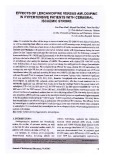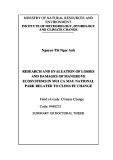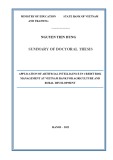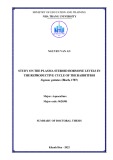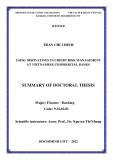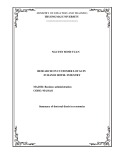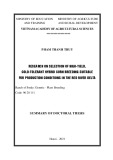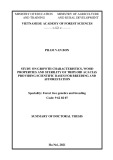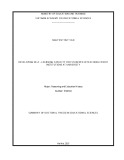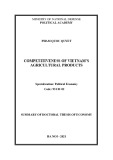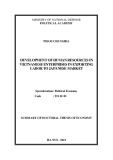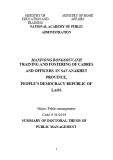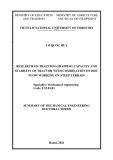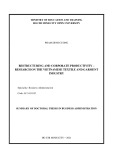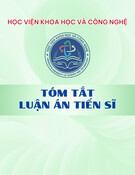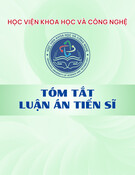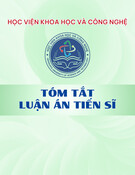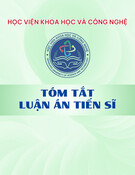
2
- To assess the effect of alleles CYP2C19*2, CYP2C19*3 on
the response of clopidogrel in patients with cerebral infarction.
3. Practical significance and contribution of the topic
The topic gives information about the rate of clopidogrel
resistance in cerebral infarction, the rate of alleles CYP2C19*2,
CYP2C19*3 and their effects on the responsiveness of clopidogrel.
The topic provides information on the relation between age,
gender, BMI, co-morbidities (such as hypertension, diabetes,
atherosclerosis, blood biochemical indices (increased CRP; albumin
reduction, drugs used together with insulin or metformin)) and
clopidogrel responsiveness and since then improves the use of
clopidogrel in the prevention on cerebral infarction.
4.The structure of the thesis
The thesis is presented in 127 pages (excluding references and
appendix)
The thesis is divided: Introduction 2 pages, chapter 1: Literature
Review 31 pages, chapter 2: Objects and Methodology 23 pages,
chapter 3: Results 36 pages, chapter 4: Discussion 32 pages,
Conclusions 2-page and Recommendations 1-page
The thesis includes 48 tables, 19 figures, 1 diagram. Among 176
references there are 23 Vietnamese documents, 153 English
documents, 31 documents in the last 5 years. The appendix includes a
studying medical record, an application for voluntary participation in
the study, ACR / EULAR 2015 diagnostic gout criteria.






